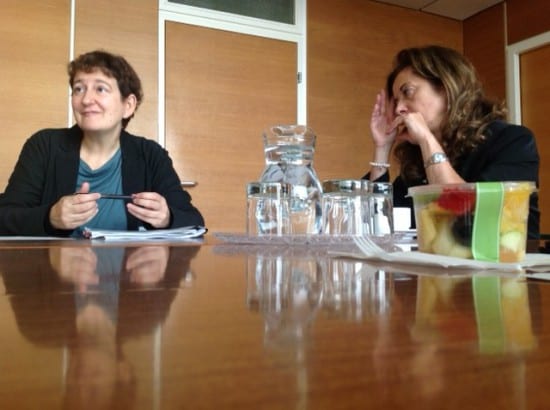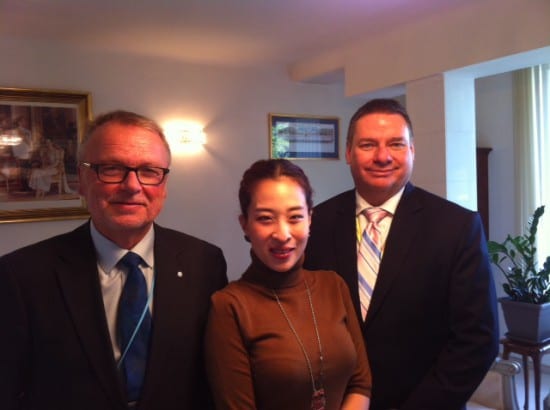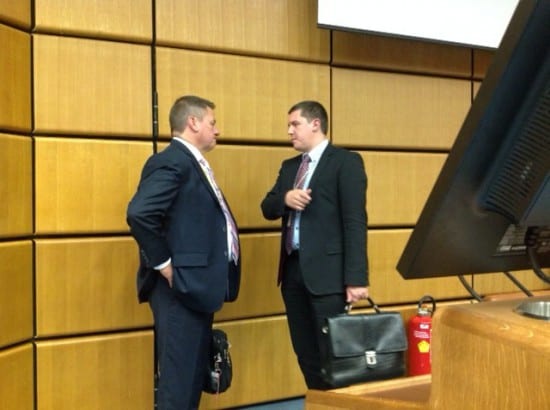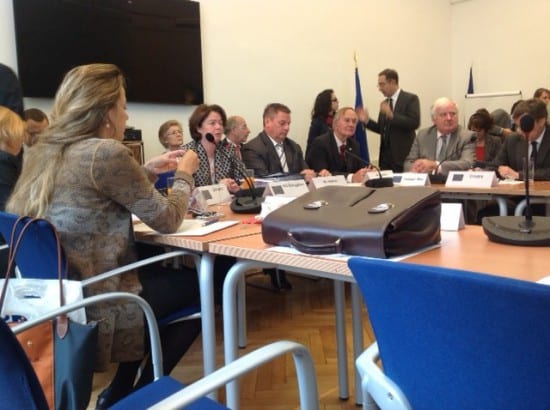The last days I have been in Vienna in my capacity as the vice chairperson of Vienna NGO Committee on Drugs (VNGOC). IOGT International nominated me to this post and I was elected in the General Assembly in March 2013 for two years.
The strategic objectives of the VNGOC are:
- Develop NGO capacity to engage UN member states and relevant UN bodies
- Create opportunities for NGO engagement with UN member states and relevant UN bodies
- Advocate for NGO inclusion in international narcotic drug policy decision-making
- Present a global NGO voice at key strategic events
Our priorities for the next years are:
- Coordinate NGO input and participation during preparations and at 2014 High Level Segment
- Identify and coordinate opportunities for VNGOC input into the 2015 MDG review process
- Lead development and delivery of NGO contributions during preparations and at 2016 UNGASS
In late July we were told that during the 2014 mid term review, the Member States at the Commission on Narcotic Drugs (CND) would be considering the extent to which the Political Declaration and Plan of Action of 2009 had been implemented and how the uptake of implementation might be increased. The Secretariat also said that the inputs from the CSOs will certainly be a valuable contributor to the range of information facilitating an effective review.
From the VNGOC we had a response from close to 100 member organizations and we replied to the CND Secretariat. Our document can be seen on the VNGOC webpage.
The procedures now with the Commission on Narcotic Drugs is that there will be monthly inter sessional meetings to draft the Joint Ministerial Statement for 2014. Our paper was a contribution to that process, but when looking into the first draft, non of our recommendations had been included.
We decided to meet a number of people important decision-makers for the process and brief them about our work, the importance of CSO involvement and engagement and discuss avenues of cooperation.
So during the last two days in Vienna we met with Meeting with the chairperson of the Commission on Narcotic Drugs H.E. Ambassador Antonio García Revilla (Peru), the Thai Ambassador Her Royal Highness, Bajrakitiyabha Mahidol, the Heads of Missions from the European Union, some 80 delegates to the CND, Russias representative Oleg Gavrilov, Drug Policy Officers from the EU and bilateral talks with the US and Swedish delegations.

Meeting with EU Policy Officers Elsa Maia and Mirella Dummar Frahi, UNODC Civil Society Team.
Cooperation between VNGOC and Brussels.
The High Level meeting in March will for sure be interesting, with a number of issues pending. The ongoing discussion in the US concerning the federal law and that the states of Washington and Colorado recently approved measures decriminalizing the possession of small amounts of recreational marijuana, while 18 other states and the District of Columbia permit the use of marijuana for medical purposes. There will be meetings between International Narcotic Control Board (INCB) and the US to look into this.
From my perspective I can see that a group of civil society people – with rich donors and vast economic interests behind them – promoting not only decriminalizing but legalization of marijuana and a number of Harm Reduction Organizations are very active to raise the question of the UN Conventions on Drugs. When listening to representatives from different regions, there seems to be no public support for this and most likely we will see status quo. But there’s a lot of fuzz.
From the IOGT International side we ask our members to be more active and visible in this matter. Our heart-driven expertise is really needed in regional and global political processes to keep the world free from the harms of narcotic drugs and to increase that freedom.




The fight against drugs has been going on for generations and lessons have been learnt over time. The approach has been focused on individuals by groups of so called experts and we are where we are now. We should now look at individuals in their communities and empower individuals and communities so that they take ownership and start doing what matters to them.